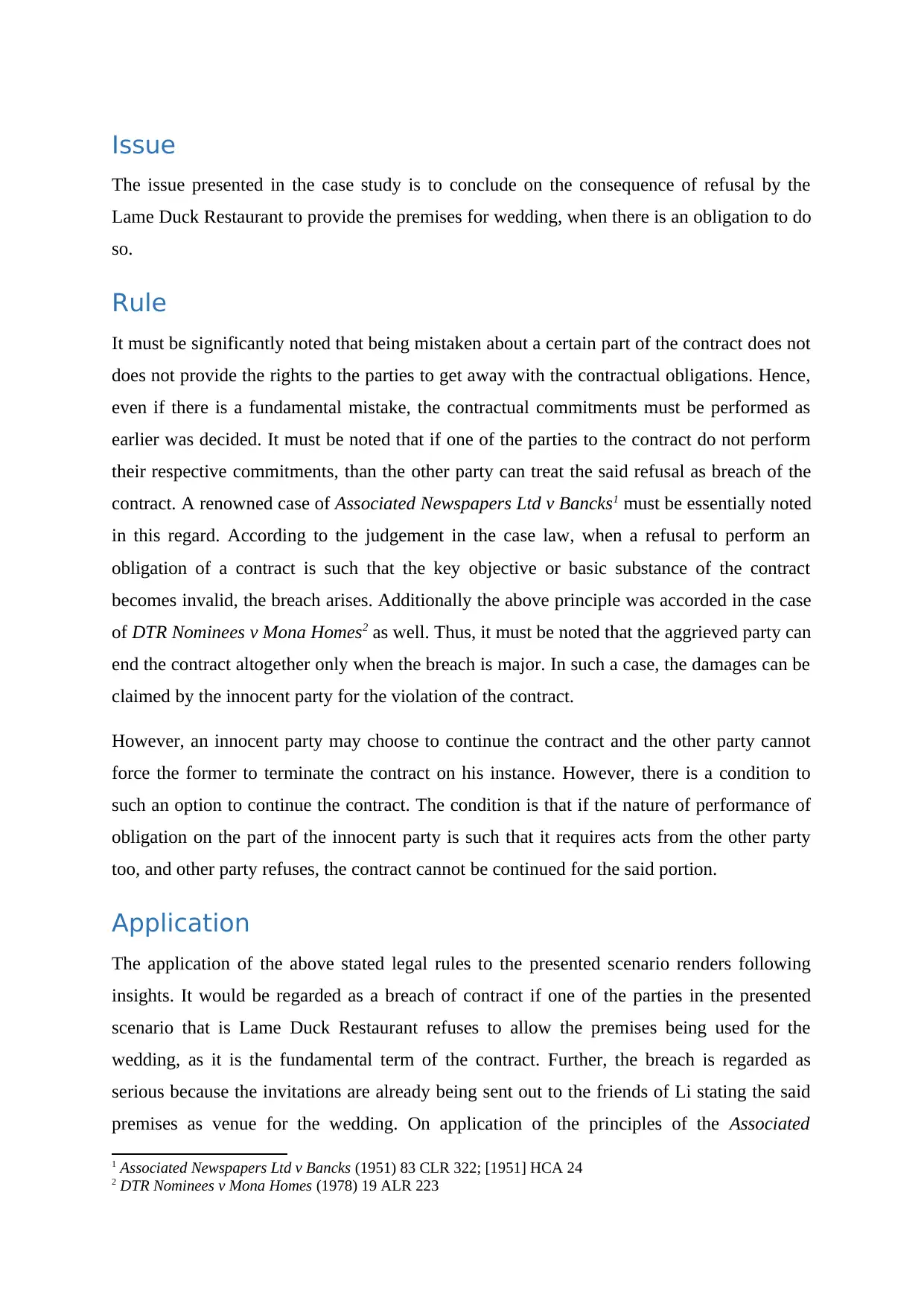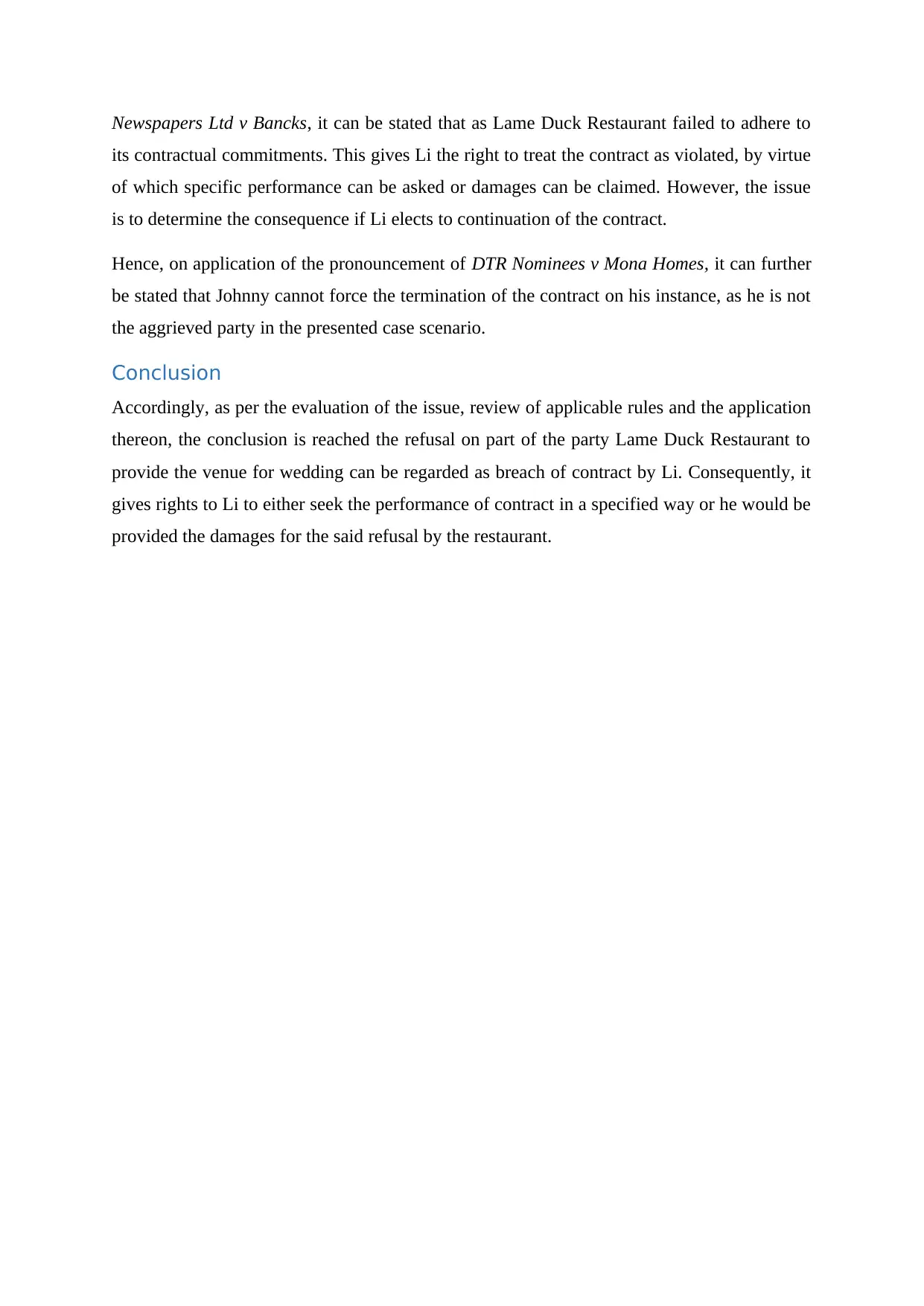Business Law Case Study: Lame Duck Restaurant's Contractual Dispute
VerifiedAdded on 2022/10/09
|4
|661
|17
Case Study
AI Summary
This case study analyzes a business law scenario involving the Lame Duck Restaurant and a customer, Li, who booked a wedding. The restaurant, due to a pricing error, refuses to honor the contract. The assignment uses the IRAC method (Issue, Rule, Application, Conclusion) to evaluate the situation, focusing on contract breach and remedies. The analysis considers whether the restaurant's refusal constitutes a breach, Li's rights to specific performance or damages, and the implications of Li's potential choice to continue the contract. The solution references legal precedents like Associated Newspapers Ltd v Bancks and DTR Nominees v Mona Homes to support its conclusions. The core issue is whether the restaurant's mistake negates its contractual obligations, and the answer examines the consequences of the refusal to provide the venue. The conclusion is that the restaurant's refusal constitutes a breach, entitling Li to seek contract performance or damages.
1 out of 4









![[object Object]](/_next/static/media/star-bottom.7253800d.svg)